Filter by
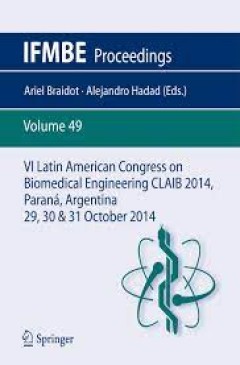
VI Latin American Congress on Biomedical Engineering CLAIB 2014, Paraná, Arg…
This volume presents the proceedings of the CLAIB 2014, held in Paraná, Entre Ríos, Argentina 29, 30 & 31 October 2014. The proceedings, presented by the Regional Council of Biomedical Engineering for Latin America (CORAL) offer research findings, experiences and activities between institutions and universities to develop Bioengineering, Biomedical Engineering and related sciences. The confe…
- Edition
- -
- ISBN/ISSN
- 978-3-319-13117-7
- Collation
- -
- Series Title
- -
- Call Number
- -
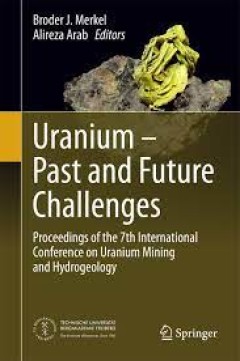
Uranium - Past and Future Challenges Proceedings of the 7th International Co…
This book is the collection of papers from the latest International Uranium Mining and Hydrogeology Conference (UMH VII) held in September 2014, in Freiberg, Germany. It is divided to five sessions: Uranium Mining, Uranium and Phosphates, Clean-up technologies for water and soil. Uranium and daughter nuclides and basic research and modeling. Each session covers a wide range of related topic and…
- Edition
- -
- ISBN/ISSN
- 978-3-319-11059-2
- Collation
- -
- Series Title
- -
- Call Number
- -
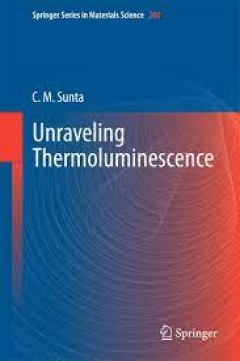
Unraveling Thermoluminescence
The book is essentially about the theoretical aspects of thermoluminescence (TL). It is structured and written in a manner which will specially be of interest to the fresh undergraduate students and young researchers planning to take up work in the field of thermoluminescence. It is arranged into seven chapters, starting with the historical growth of the subject of TL and an overview of the lum…
- Edition
- -
- ISBN/ISSN
- 978-81-322-1940-8
- Collation
- -
- Series Title
- -
- Call Number
- -
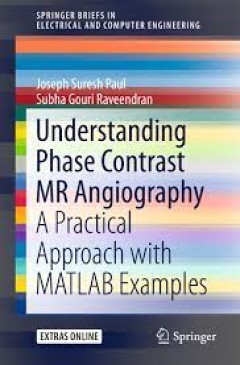
Understanding Phase Contrast MR Angiography A Practical Approach with MATLAB…
Providing many unique MATLAB codes and functions throughout, this book covers the basics of Magnetic Resonance Imaging (MRI), leading to an in-depth understanding of the concepts and tools required for analysis and interpretation of Phase Contrast MR Angiography (PC-MRA). The concept of PC-MRA is often difficult, but essential for practicing engineers and scientists working in MR related areas.…
- Edition
- -
- ISBN/ISSN
- 978-3-319-25483-8
- Collation
- -
- Series Title
- -
- Call Number
- -
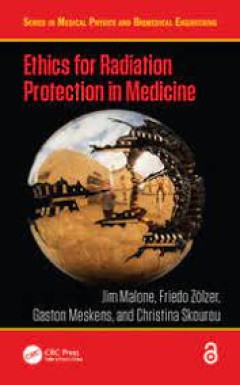
Ethics for Radiation Protection in Medicine
This book presents an up to date ethical framework for radiological protection in medicine. It is consistent with the requirements of the system of radiation protection and with the expectations of medical ethics. It presents an approach rooted in the medical tradition, and alert to contemporary social expectations. It provides readers with a practical framework against which they can assess th…
- Edition
- -
- ISBN/ISSN
- 9781351372497
- Collation
- -
- Series Title
- -
- Call Number
- -
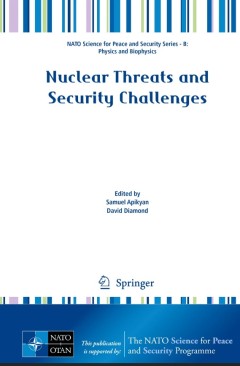
Nuclear Threats and Security Challenges
With the dissolution of the Soviet Union the nuclear threats facing the world are constantly evolving and have grown more complex since the end of the Cold War. The diversion of complete weapon systems or nuclear material to rogue nations and terrorist organizations has increased. The events of the past years have proved the necessity to reevaluate these threats on a level never before consider…
- Edition
- 1
- ISBN/ISSN
- 978-94-017-9893-8
- Collation
- IX, 285
- Series Title
- NATO Science for Peace and Security Series B: Physics and Biophysics
- Call Number
- -
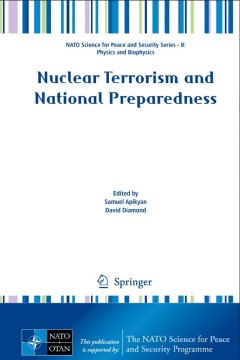
Nuclear Terrorism and National Preparedness
The nuclear crisis in Fukushima and growing threats of nuclear terrorism must serve as a wake-up call, prompting greater action to prepare ourselves for nuclear and radiological disasters. Our strategy to prepare for these threats is multi-layered and the events of these past years have proved the necessity to re-evaluate the national and international preparedness goals on a scale never before…
- Edition
- 1
- ISBN/ISSN
- 978-94-017-9890-7
- Collation
- IX, 263
- Series Title
- -
- Call Number
- -
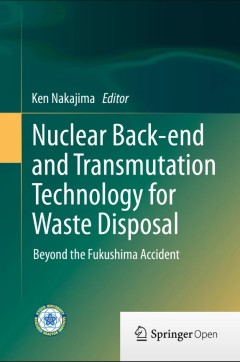
Nuclear Back-end and Transmutation Technology for Waste Disposal:Beyond the F…
This book covers essential aspects of transmutation technologies, highlighting especially the advances in Japan. The accident at the Fukushima Daiichi Nuclear Power Plant (NPP) has caused us to focus attention on a large amount of spent nuclear fuels stored in NPPs. In addition, public anxiety regarding the treatment and disposal of high-level radioactive wastes that require long-term control i…
- Edition
- 1
- ISBN/ISSN
- 978-4-431-55110-2
- Collation
- XV, 341
- Series Title
- -
- Call Number
- -
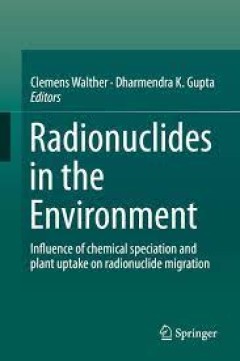
Radionuclides in the Environment Influence of chemical speciation and plant …
This book provides extensive and comprehensive information to researchers and academicians who are interested in radionuclide contamination, its sources and environmental impact. It is also useful for graduate and undergraduate students specializing in radioactive-waste disposal and its impact on natural as well as manmade environments. A number of sites are affected by large legacies of was…
- Edition
- -
- ISBN/ISSN
- 978-3-319-22171-7
- Collation
- -
- Series Title
- -
- Call Number
- -
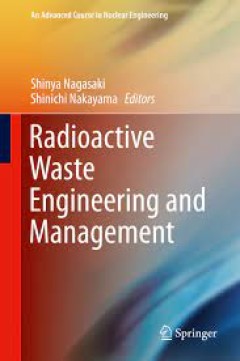
Radioactive Waste Engineering and Management
This book describes essential and effective management for reliably ensuring public safety from radioactive wastes in Japan. This is the first book to cover many aspects of wastes from the nuclear fuel cycle to research and medical use, allowing readers to understand the characterization, treatment and final disposal of generated wastes, performance assessment, institutional systems, and social…
- Edition
- -
- ISBN/ISSN
- 978-4-431-55417-2
- Collation
- -
- Series Title
- -
- Call Number
- -
 Computer Science, Information & General Works
Computer Science, Information & General Works  Philosophy & Psychology
Philosophy & Psychology  Religion
Religion  Social Sciences
Social Sciences  Language
Language  Pure Science
Pure Science  Applied Sciences
Applied Sciences  Art & Recreation
Art & Recreation  Literature
Literature  History & Geography
History & Geography